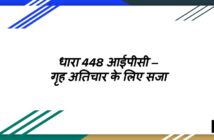Summons is an order of the Court to call a person to appear before the Court to defend himself in case a suit is filed against him (defendant) or to give evidence or produce documents (witness). We have discussed summons to the defendant in our previous article. In this article, we will focus on summoning witnesses, the procedure to serve a summons on the witness, provisions relating to the cost of summoning a witness, when a witness departs, what is the consequence of failure to comply with the summons and what happens if the witness is unable to produce documents or give evidence.
When is a witness summoned? When is a summons to witness issued?
Order XVI, Rule 1-21 under Section 27 -31 of the Code of Civil Procedure (CPC) deals with the provisions for the summoning and attendance of witnesses. When a civil suit is instituted, the first step is the issuance of a summons. The summons is issued to the witness informing him/her that a suit has been instituted in which he/she is required to appear before the Court to produce documents or give evidence relating to the suit.
If the witness is summoned to produce documents, then in such case, it is not necessary for such person to attend the Court personally if he can cause the document to be produced before the Court.
Procedure to issue summons to witnesses
When a suit is instituted, the party to the suit makes an application to the Court to issue a summons for the attendance of witnesses in the Court within 5 days from the date of presenting the list of witnesses.
The party should present the list of witnesses they wish to call to the Court.
The list of witnesses should be submitted within 15 days from the date of the institution of the suit.
The application for summoning of the witness should contain the purpose of summoning the witness, whether to give evidence or produce documents. It should also include the time and place the witness is expected to attend.
On receiving the application, the Court may permit the party to call any person whose name is not mentioned in the list of witnesses, provided the party states the reason for not mentioning the person’s name.
Gujrant Singh Vs Smt. Amarjeet Kaur & Anr. (2022)
In this case, Respondent No. 1 instituted a suit to declare the relinquishment deed issued on 28.01.2011 as null and void. The Petitioner had moved to the Court to make an application for summoning of witnesses, a stamp vendor, and a Sub-Registrar, whose presence is necessary for the suit. It was contended that both the witnesses had refused to attend the suit proceedings to give evidence. Therefore, a summons should be instituted to call the witnesses.
The trial court rejected the application stating that the applicant had failed to show the relevance of summoning the witnesses. The Petitioner had filed a writ petition under Article 227 of the Indian Constitution to question the order passed by the trial court.
The Court had held that the stamp vendor from whom the stamps were purchased and Sub-Registrar, who had registered the document, are essential witnesses who can assist the Court in arriving at a correct solution. The Court had quashed the trial court’s order. It directed it to issue summons stating that the party summoning witness doesn’t need to establish or prove the relevance of the witness. The trial court must prima facie ascertain the need and relevancy of the witness.
List of witnesses
A list of witnesses means the number of people a party to the suit wish to call in a court to give evidence or documents supporting the suit.
What are the provisions relating to the cost of summoning a witness?
The cost of summoning a witness is borne by the party applying for the summoning of witnesses. This cost has to be paid in Court within seven days from the date of making an application. The cost of summons includes the sum as may be directed by the Court to cover travelling and other expenses for one day’s attendance.
In case the person summoned is an expert. The Court may direct to pay the reasonable remuneration for the time and effort made for the expert’s service in giving the evidence before the Court.
The payment made to the Court will be directly given to the witnesses summoned during the time of serving the summons. However, suppose the summons is personally served to the witness by the party. In that case, the payment can be made directly to the witness by the party or agent at the time of serving the summons.
Suppose the amount paid is insufficient to cover an expert’s expenses or remuneration. In that case, the Court can order an additional amount to be paid to the person summoned.
In case of default in making payment by the party summoning witnesses, then the Court may order:
- The amount to be collected by attachment and sale of the moveable property of the person summoning.
- Discharge the person summoned without giving evidence or producing documents.
- Both attachment and discharge of such person.
What is the procedure to serve summons to witnesses?
The procedure to serve a summons to a witness is the same as a summons to a defendant.
The serving officer or party to the suit can serve the summons. In addition, the Court may permit the party to personally serve the witness summons on making an application to that effect.
The service of summons can be tendered personally to the witness. The copy of the summon should be signed by the Judge or any other officer appointed by the Court along with the seal of the Court.
When a summon is tendered, it should be acknowledged by the person on whom it is served and return the copy of the summons to the Court.
If the witness refuses to accept or sign the acknowledgement of service or if the summons cannot be served personally, then the party can make an application to re-issue the summons to be served by the Court in the same manner as the summons to the defendant.
The cost of service of summons shall be borne by the party. However, if the summons is served by the party, then the party will be exempted from paying the fees.
The summons should be served before the time mentioned so that the witness is given sufficient time to prepare and travel to the Court where his attendance is required.
Consequence of failure to comply with the summons (Rule 10-13)
If a person who is summoned fails to give evidence or produce documents in compliance with the summons, then the Court may –
- Verify the certificate of the serving officer if the service officer gives the summons and
- Examine on oath the service officer, party, or agent who had served the summon on the witness; whether the summons was served or not.
- If it has reason to believe that such evidence or document is essential for the matter, and the witness has, without any lawful excuse, avoided the summons intentionally, then issue a proclamation (decree) to attend the Court and give evidence or produce the document and affix a copy of such proclamation at the door outside his residence or any conspicuous part of his house;
- Issue a warrant for arrest (with or without bail) and
- Attach his moveable property.
However, if the witness appears before the Court after the attachment of the property and satisfies the Court that he did not intentionally, without any lawful excuse, avoid the summons; and in case a proclamation is issued, he should satisfy that he had no notice of such proclamation, then, the Court may order the release of property from attachment.
Moreover, suppose the witness does not appear or fails to satisfy the Court. In that case, the Court may impose a fine of not more than five hundred rupees and order attachment of his property. If the property is already attached, order it to be sold to cover the cost of such attachment, including the fine. If the person has already paid the cost and fine, the Court may order to release his property from the attachment.
If the court has neither issued a proclamation nor attached the property, then it can impose a fine on such person with a show cause notice as to why a fine should not be imposed.
Can the Court cause a stranger to the suit to be summoned as a witness?
Yes, the Court may, at its discretion, during the suit, summon a person (stranger) who is not mentioned in the list of witnesses to attend the suit proceedings and examine any party to the suit, or give evidence or produce documents as may be necessary.
What happens if the witness is unable to produce documents or give evidence?
Suppose a witness arrested under a warrant is produced before the Court to give evidence or produce documents but cannot produce any documents or give evidence due to the absence of parties. Then, in such case, the Court may release the witness on receiving any bail or security for his appearance at a later date. However, if the person fails to give bail or security, he will be detained in a civil suit.
When can a witness depart?
A witness must attend the suit proceeding until it is disposed of. If a suit is not disposed of, the witness must attend the next hearing if either party applies for it in Court. The Court may even require a person to furnish security to attend the next hearing. In case of default in providing the protection, the Court may detain the person in a civil suit. However, suppose a witness attends the suit proceedings in compliance with the summons but leaves or departs the suit without any lawful reason. In that case, provisions of Rule 10-13 shall apply.
What is the consequence of the refusal of the party to give evidence or produce documents?
Suppose a party to the suit refuses to produce documents or give evidence in the Court itself which is in his possession or power, without any lawful excuse. In that case, a decree may be passed against him.
Conclusion
A party to the suit may apply to the Court for summoning and attending witnesses to appear to the Court to give evidence or produce documents. To make an application for summoning a witness, the party summoning has to submit a list of witnesses whom they wish to call before the Court. The party summoning bears the cost of summoning a witness. The Court may also, at its discretion, issue a summons to any person not mentioned in the list of witnesses. Suppose the person summoned fails to submit may document or give evidence. In that case, a warrant may be issued against such person, his property may be attached, and he may also be liable for a fine.

